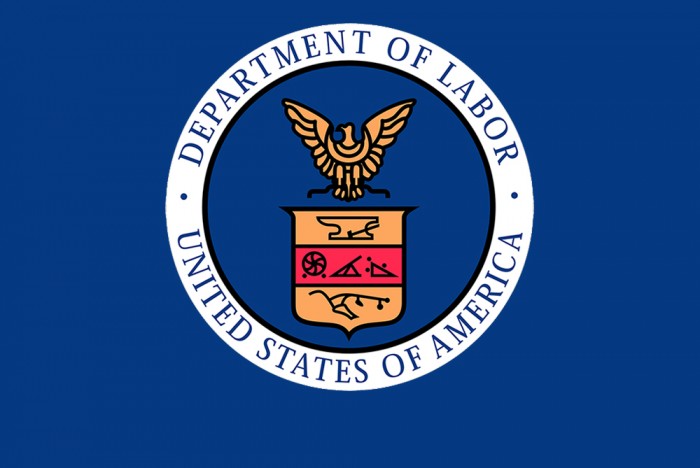Resources
ODP Announces Second Publication of the Resource Guide for Supporting Deaf, DeafBlind, and Hard of Hearing Individuals
The purpose of this guide is to offer resources in one central location for those who support or care for someone who is Deaf, Hard of Hearing, or DeafBlind and receives supports from the Office of Developmental Programs (ODP). The guide provides some of the most frequently accessed resources to assist in addressing the unique needs of these populations, such as information about American Sign Language (ASL) courses, apps, home modifications, assistive technology, a foundational organizations directory, and so much more!
Development of this guide included input from individuals within the Deaf, DeafBlind, hard of hearing, and hearing communities and will be revised annually by ODP’s Deaf, DeafBlind, and Hard of Hearing Advisory Committee.
This guide can be found here. For questions, email ODP Deaf Services.
Department of Health Creates the Non-Traditional Infection Control Consulting (NICC) Team
The COVID-19 pandemic has highlighted the fundamental role that infection prevention and control (IPC) practices play in the delivery of safe healthcare and sustaining a strong, healthy community. The pandemic has taught us that not all healthcare settings have the same needs, abilities, or serve the same populations, and because of that, each facility may have their own set of unique IPC challenges. Behavioral health/psychiatric facilities, drug & alcohol treatment centers, and group homes have been identified as the state’s non-traditional healthcare settings, and through experience, we have learned that these sites may require additional IPC support and resources. Recognizing this need, DOH has created the Non-traditional Infection Control Consulting (NICC) Team.
The NICC Team is a group of certified, experienced infection preventionists with commitment to empowering and supporting non-traditional healthcare settings throughout the Commonwealth of Pennsylvania as they aim to reduce transmissible diseases and conditions. To assist in promoting integration of best practice IPC principles into all roles and aspects of care in these settings, the NICC Team can provide the following free of cost services:
- Infection prevention and control consultations;
- Guided facility assessments;
- Policy and guidance interpretation and recommendations (DOH, CDC, CMS, DHS, etc.);
- Education and training resources; and
- Tools and resources to support facility needs, including audit tools, checklists, and fact sheets.
Please review the more detailed information sheet about the team’s services and an introductory program flyer to share with non-traditional healthcare partners & facilities. This new resource is intended to increase awareness of IPC best practices as they aim to ensure patient safety in all PA healthcare settings.
Engaging with ANCOR — Cheat Sheet for Committees, Groups, and ACC Forums
July 19 ICF Task Force Meeting Information
From Pam Gilbert, Fiscal Manager, PA Department of Human Services, Office of Developmental Programs:
Below are copies of presentation slides from the following segments of our ICF Task Force meeting this morning:
- Kristen Ahrens – ODP Updates;
- Dr. Cherpes – COVID Updates;
- Megan Barber – DOH COVID-19 Planning for LTC facilities/One page information on LTC RISE; and
- Pam Gilbert – ID-46 Example Pages and Notes of Points Discussed.
See the document titled “ICF TaskForce Q and A Log 2022.07.19.”
Note that, after the meeting, ODP decided to revise the Day Program section of the Beneficiary Acuity schedule of the cost report. Changes made were to:
- Use 15-minute units instead of days, consistent with the HCBS waiver fee schedule;
- Eliminate the need to report HCBS fees if that is how services were billed and expenses recorded; and
- Make columns 4 through 11 not applicable for FY 2021/22 to give providers more time to prepare for this level of reporting.
See the file “Revised Beneficiary Acuity page_7.20.22” for illustration.
Finalization and testing of the cost report form is continuing and will be released as soon as possible.
For questions, please email.
RCPA Member APA Survey Overview
Joint DHS Bulletin: Referring Children to the County Intellectual Disability and Autism Programs
The purpose of this bulletin is to provide guidance to the county and private children and youth social service agencies, county mental health/behavioral health programs, early intervention (EI) programs, and managed care organizations on the process for referring children to the county intellectual disability and autism program when a child has a diagnosis of an intellectual disability, developmental disability, and/or autism (ID/DD/A) (information regarding eligibility and diagnostic criteria can be found here) or when it is suspected that a child may have one of these diagnoses.
Referring the child to the county ID/A program can provide eligible children and their families with access to information, services, and supports in the community, as well as assistance with preparing for life’s transitions through childhood into adulthood.
The Department of Human Services (DHS) wants to improve services and supports to all children and their families or legal guardians so that children can grow to adulthood living in a home with loving adults. The Office of Developmental Programs (ODP), the Office of Child Development and Early Learning (OCDEL), the Office of Children, Youth, and Families (OCYF), the Office of Mental Health and Substance Abuse Services (OMHSAS), and the Office of Medical Assistance Programs (OMAP) work closely together to ensure children with ID/DD/A and their families have access to high quality services that support the child’s growth and development. Please visit here for further information about each DHS Office addressed in this bulletin.
During the registration and eligibility process for services, the county ID/A program or TSM provider should offer families information about the Charting the LifeCourse framework and tools that were developed by the UMKC Institute for Human Development, UCEDD.
If stakeholders have any questions about the bulletin, they should send their questions via email.
Department of Labor Offers New Resources: Rehabilitation Act Section 511 and FLSA Section 14(c)
The Department of Labor’s Wage and Hour Division (WHD) is offering a webinar in conjunction with the U.S. Department of Education for employers, workers, families, and advocates interested in understanding the application of Rehabilitation Act Section 511 and the protections it offers workers employed under Section 14(c) of the Fair Labor Standards Act.
- You can join the free Section 511/Section 14(c) webinar, Understanding Resources and Information Requirements for Workers Under 14(c), on July 20, 2022, from 1:00 pm – 2:30 pm EDT.
WHD also recently published a new Field Assistance Bulletin, and this week published three fact sheets providing new guidance and clarification on these critical protections:
- Fact Sheet #39H: Limitations on the Payment of Subminimum Wages under Rehabilitation Act Section 511;
- Fact Sheet 39H(a): Pre-Employment Requirements for Youth with Disabilities under Rehabilitation Act Section 511; and
- Fact Sheet 39H(b): Limitations on the Payment of Subminimum Wages for All Employees under Rehabilitation Act Section 511.
WHD is committed to protecting workers with disabilities — see their recently published blog, along with the Office of Disability Employment Policy, on Protecting the Rights of Workers with Disabilities and Advancing Competitive Integrated Employment. Additional information on Section 14(c) and Section 511 can be found on the DOL website.
PN-3 Quarterly Update Q4 June 2022: Updates, Resources, and Reports
Opening and Returning to Full Capacity for Day Center Programming, Infection Prevention Principles — Handout Available
The Office of Developmental Programs (ODP) held a webinar for residential and day service providers, families, and Supports Coordination Organizations (SCO) to cover best practices for reopening day service provider facilities on June 6, 2022. The handout from the webinar is available for reference. Please see below:

















